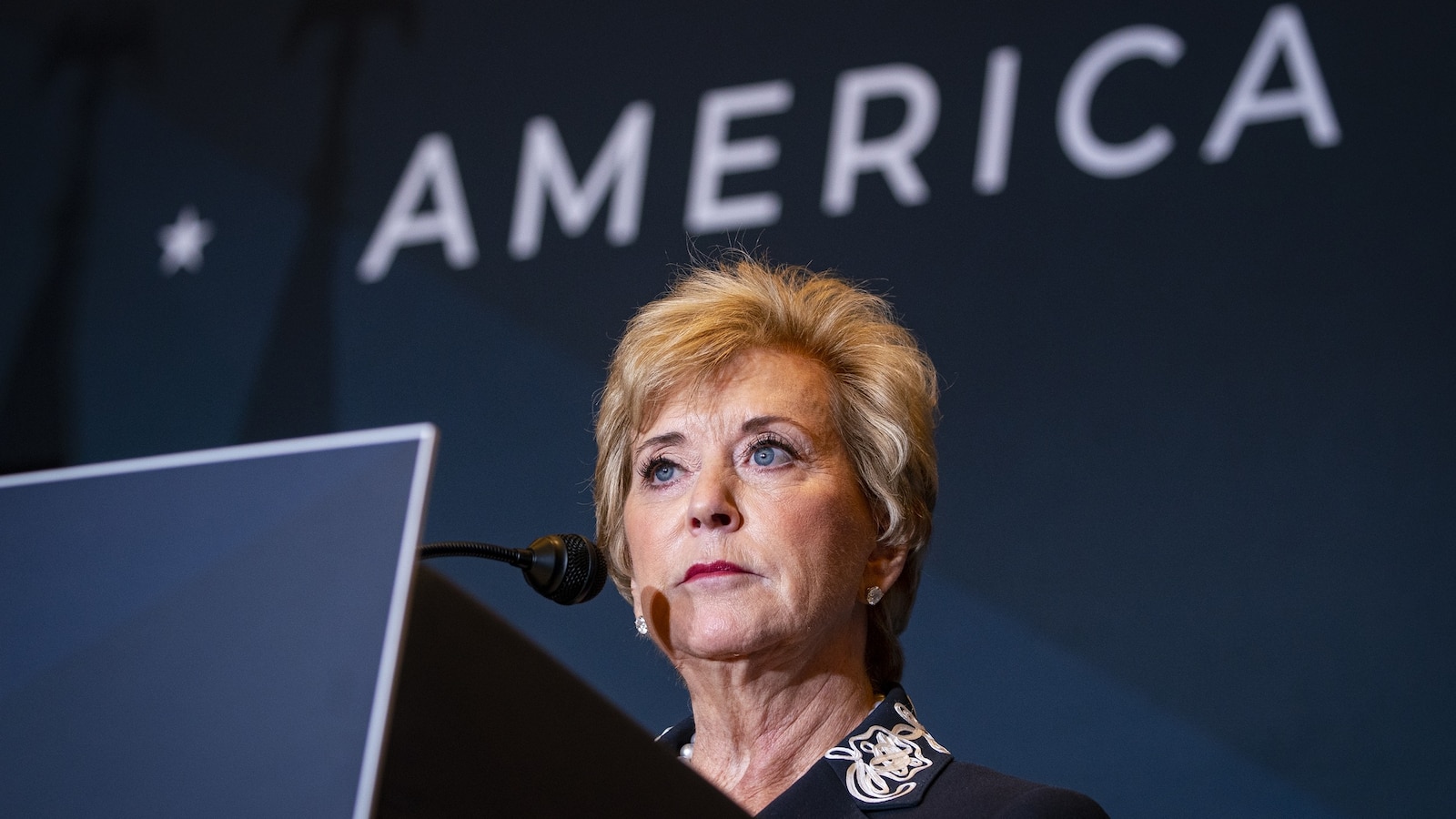President-elect Donald Trump announced Linda McMahon, his transition co-chair and former small business administrator, as his nomination for the next secretary of education.
“As Secretary of Education, Linda will fight tirelessly to expand “Choice” to every State in America, and empower parents to make the best Education decisions for their families.” Trump wrote on social media.
Trump’s top education priorities in his Agenda47 policy platform include restoring and empowering parental rights and parental control.
Conservatives, led by political figures like Virginia Gov. Glenn Youngkin, Florida Gov. Ron DeSantis and groups like Moms for Liberty, have embraced the mantle of parental rights and claimed — in part because of the window that remote schooling opened into the classroom — that public school instruction has been hijacked by inappropriate curricula on LGBTQ+ topics, race and discrimination and more.
McMahon, 76, led the SBA from 2017-2019 during Trump’s first administration. The Trump loyalist is the first cabinet secretary from his previous administration to be picked for a role in the upcoming administration.

Linda McMahon, former administrator of the US Small Business Administration, during the America First Policy Institute’s America First Agenda summit in Washington, D.C., US, on Monday, July 25, 2022. The non-profit think tank was formed last year by former cabinet members and top officials in the Trump administration to create platforms based on his policies. Photographer: Al Drago/Bloomberg via Getty Images
Bloomberg via Getty Images
McMahon is also the wife of former World Wrestling Entertainment (WWE) CEO Vince McMahon. The two co-founded WWE together in 1980.
McMahon, a major GOP donor who has given tens of millions of dollars in support of pro-Trump causes, is chair of the America First Policy Institute (AFPI) board. She also served two years on the Connecticut Board of Education.
Trump choosing a confidante for this position and others creates unhelpful groupthink that could potentially lead to bad decision-making for U.S. students, Wil Del Pilar, senior vice president of the advocacy group The Education Trust, told ABC News.

WASHINGTON, DC – SEPTEMBER 17: Administrator of the Small Business Administration Linda McMahon speaks as U.S. President Donald Trump listens during the inaugural meeting of the Presidents National Council for the American Worker in the Roosevelt Room of the White House on September 17, 2018 in Washington, DC. (Photo by Oliver Contreras – Pool/Getty Images)
Pool/Getty Images
“The danger in appointing loyalists is that you have a group of folks who all think the same, and they all think the way that the President-elect thinks,” Del Pilar said. “By appointing someone who will offer no resistance, it gets him [Trump] closer to his ultimate goal, which is to eliminate the Department of Education.”
Trump can’t abolish the Department of Education on day one without congressional action, but his Agenda47 education platform makes clear he wants to do so “very early in the administration.”
“We’re going to close it up,” the president-elect said in a Agenda47 video message released last year, adding, “All those buildings, all over the place, and you have people that, in many cases, hate our children. We’re going to send it all back to the States.”
While possible in theory, education policy experts who spoke with ABC News suggest that would be an extremely chaotic – and unrealistic — task on Inauguration Day.
“The Department of Education was created through legislation,” Cato Institute Education analyst Neal McCluskey told ABC News. “Legislation comes through Congress. If you want to take the Department of Education apart, you have to do that through legislation,” McCluskey added.
Education experts suggest closing up the department could gut public education funding and disproportionately impact high-need students across the country.
House Education and the Workforce Committee Chairwoman Virginia Foxx argued that it’s not a constitutional requirement to have such a department. She called McMahon a “fighter” who will work tirelessly in service of the students.
Meanwhile, National Education Association (NEA) President Becky Pringle blasted the selection.
“McMahon’s (sic) only mission is to eliminate the Department of Education and take away taxpayer dollars from public schools, where 90% of students – and 95% of students with disabilities – learn, and give them to unaccountable and discriminatory private schools,” Pringle said in a statement to ABC News. “The Senate must stand up for our students and reject Donald Trump’s unqualified nominee, Linda McMahon. Our students and our nation deserve so much better than Betsy DeVos 2.0.”
According to education experts, an end to the Department of Education could also leave billions of funds, scholarships, grants and more hanging in the balance for the millions of K-12 and college students attending schools in the U.S.
However, critics of the department argue that federal education spending has ballooned since its founding — costing $23 billion to date in the 2025 fiscal year, about 4% of government spending so far — but measures of student success like reading and math scores have fallen in recent years.

